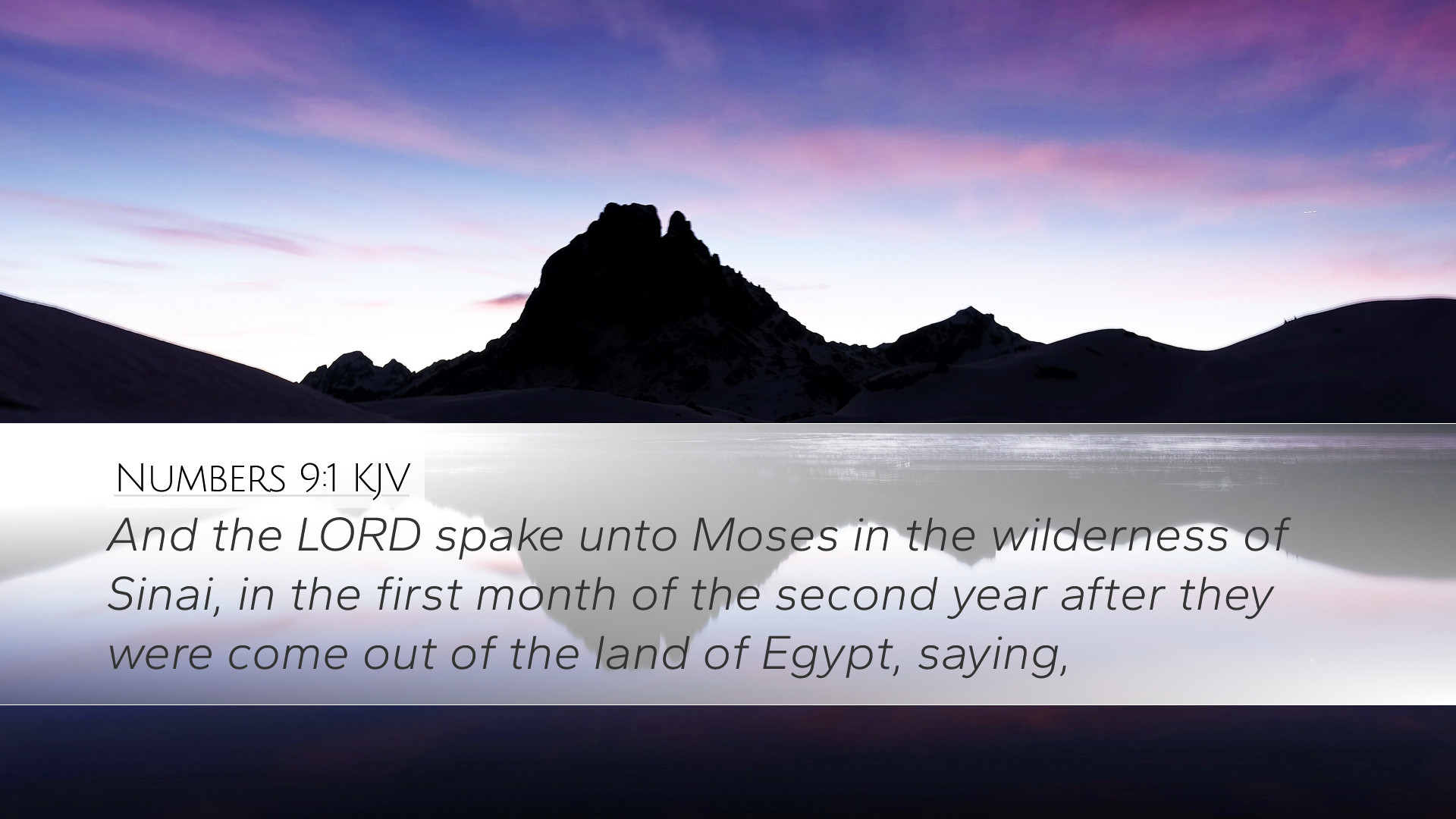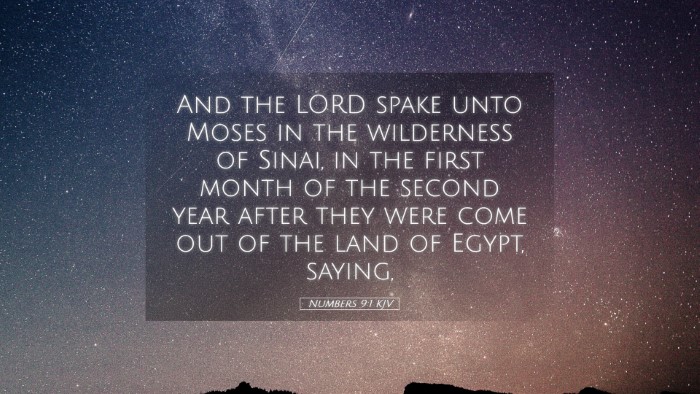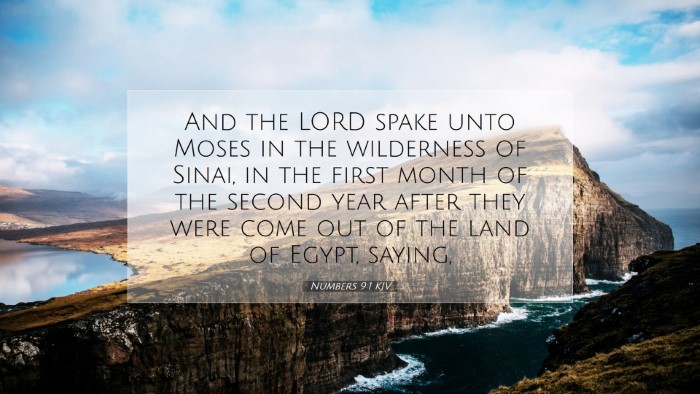Commentary on Numbers 9:1
The book of Numbers presents a pivotal segment in the narrative of Israel's journey through the wilderness. Numbers 9:1 reads:
"And the Lord spake unto Moses in the wilderness of Sinai, in the first month of the second year after they were come out of the land of Egypt, saying,"
Contextual Background
This verse marks a significant moment in the continuity of the Lord's guidance of His people post-Exodus. It specifically denotes that it is the first month of the second year since their liberation from Egypt, highlighting the importance of timing in their journey. The statements made by God convey directions regarding the Passover, which is crucial for the Israelites and encapsulates the theme of remembrance and obedience.
Insights from Matthew Henry
Matthew Henry emphasizes that God's communication with Moses signifies the ongoing relationship between God and His chosen leader. The wilderness setting serves as a reminder of their pilgrimage, reflecting upon the transition from bondage to freedom. Henry notes:
"God's people are never without His Word and His worship; He speaks to them in their wilderness."
Henry asserts that the Lord's speaking in the wilderness indicates a continued presence and involvement in their affairs, suggesting that even amid trials, divine guidance is afforded.
Albert Barnes’ Analysis
Albert Barnes provides valuable insights into the significance of time as it relates to obedience. He highlights that marking the second year since leaving Egypt signifies a time of preparation. Barnes reflects on how the Israelites are reminded to observe the Passover:
"This was a period intended for setting forth the ordinances that were to govern the worship and life of the people."
Here, Barnes correlates God’s command with the spiritual continuity and identity of the Israelites as they transition from servitude to a covenant community centered around divine ordinances.
Adam Clarke's Exegesis
Adam Clarke highlights the importance of God's timing, positing that the events occurring in the first month (Abib) are symbolic of new beginnings and divine deliverance:
"The month of Abib is to be noted for its significance, as it heralds the Passover, reminding the people of their deliverance."
This observation by Clarke emphasizes that the command to observe Passover is not merely ritualistic; instead, it calls the community to remember their unique identity shaped by God’s intervention in their lives.
Theological Implications
Numbers 9:1 serves a dual purpose: it is a historical record and a theological declaration. From a theological standpoint, this verse illustrates several key themes:
- Divine Timing: God's timing is perfect, as He is intentional in establishing significant markers for His people's journey of faith.
- Identity and Remembrance: The Passover becomes a defining event that establishes the collective memory of the Israelites, reinforcing their identity as God’s chosen people.
- Continuous Revelation: God's ongoing communication with Moses reinforces the idea of continuous revelation—an invitation for obedience that governs the life of the community.
Call to Action for Contemporary Readers
This verse challenges modern believers to reflect upon their spiritual journey:
- Listening for God's Voice: Just as God spoke to Moses, individuals must cultivate an ear to hear divine guidance, especially in seasons of uncertainty.
- Embracing Spiritual Milestones: Believers are encouraged to observe and remember significant spiritual milestones that shape their identity in Christ.
- Living Out Obedience: The call to observe the Passover serves as a reminder for contemporary readers to uphold faithfulness to God’s commands in their lives.
Conclusion
In conclusion, Numbers 9:1 is not simply a statement of fact; it represents a significant theological moment pregnant with meaning. The insights from Matthew Henry, Albert Barnes, and Adam Clarke collectively underscore the enduring relevance of obedience to God's directives, the importance of remembrance in shaping identity, and the vitality of discerning God's voice in the wilderness of our lives. The narratives woven through this verse challenge believers to seek God actively, recognizing the transformative power embedded in divine recognition and response.


